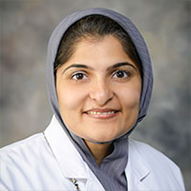Dallas
214-456-5959
Fax: 214-456-5963
Plano
469-303-2400
Fax: 469-303-2407
Park Cities
469-488-7000
Fax: 469-488-7001
214-456-5959
Fax: 214-456-5963
469-303-2400
Fax: 469-303-2407
469-488-7000
Fax: 469-488-7001
Follicular thyroid carcinoma is the second most common type of cancer of the thyroid gland. Representing about 5-10% of all pediatric thyroid cancer diagnoses, it is much less common than papillary thyroid carcinoma.
While some risk factors have been identified, the majority of patients will not have any risk factors. While there is ongoing research into possible genetic causes of papillary thyroid carcinoma, the primary known risk factors for the disease include:
It occurs more commonly in females and amongst the pediatric population, teenage girls are at greatest risk.
Many children will not have any symptoms when they are diagnosed or until the disease has progressed. Follicular thyroid carcinoma is most commonly found as a lump or swelling in the neck.
Parents may notice:
Sometimes it is identified only incidentally after a radiologic study of the neck is ordered for another reason and a lesion is seen in the thyroid gland.
The core evaluation of follicular thyroid carcinoma includes an initial comprehensive visit with a member of the Thyroid team as well as a blood draw to evaluate the function of the thyroid gland, an ultrasound of the thyroid and neck, and a fine needle aspiration (FNA) biopsy of the thyroid mass.
Based on the results of these and possible additional studies, a treatment plan will be recommended.
As with all types of cancers, follicular thyroid carcinoma is caused by the reproduction of abnormal cells forming what is known as a tumor. The exact trigger for this growth is unknown.
The extent of surgical and medical treatment will depend on the extent of your child’s disease.
Initial treatment consists of surgical excision of all or part of the thyroid gland. Follicular thyroid carcinoma has a tendency to spread through blood vessels and therefore is less likely to spread into lymph nodes in the neck than papillary thyroid carcinoma and more likely to spread into other sites such as the lungs, liver, and bones. Surgical or other additional treatment may be required to treat any disease that has spread beyond the thyroid gland.
Once surgical management is complete, radioactive iodine treatment will be administered. Radioactive iodine treatment involves taking a pill that targets and kills any remaining thyroid tissue left after surgery. In rare cases chemotherapy or external radiation may be required to treat extensive or residual disease.










Follicular thyroid carcinoma tends to grow slowly and generally responds well to treatment. The overall prognosis for pediatric patients with follicular thyroid carcinoma is very good. An individual’s prognosis depends on a number of factors, including whether the cancer appears to have spread into blood vessels or outside of the thyroid gland.
While the disease itself is very treatable, persistent and recurrent disease is more common in the pediatric population and may present even decades after initial treatment and a long period during which there was no evidence of disease. For this reason, multiple procedures and multiple radioactive iodine treatments may be required and long-term follow-up is critical.
While recurrent disease is actually more common in children than in adults, the outcomes in pediatric patients with recurrence are actually better. With appropriate treatment most patients with follicular thyroid carcinoma can expect to lead a long and fulfilling life.
Patients will need close follow-up to monitor for disease recurrence after surgery. Thyroid hormone replacement therapy is generally taken by mouth for the rest of the patient’s life to replace the hormone that the body needs but can no longer produce once the gland has been removed.